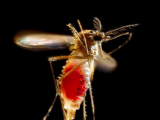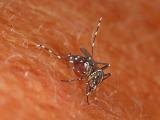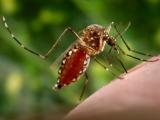Jun 23, 2010
Honduras declares dengue emergency
The Honduran government declared a dengue emergency yesterday in the wake of an intensifying outbreak that has killed nine people so far, according to a report from China's Xinhua news agency. The country's health ministry said it has recorded more than 10,000 cases, of which 400 were dengue hemorrhagic fever, a potentially deadly complication of the mosquito-borne disease. Most of the cases are occurring in San Pedro Sula and Tegucigalpa, the country's two largest cities, where health officials said prevention efforts have been unable to slow the spread of the disease.
Jun 22 Xinhua story
Russia confirms polio cases, suspects Tajikistan outbreak links
Russia's health ministry has confirmed seven polio cases that it says are probably linked to an outbreak in Tajikistan, Radio Free Europe reported today. The polio cases are Russia's first in 15 years. Confirmed cases are from Irkutsk, Chelyabinsk, and Sverdlovsk regions, as well as Moscow. In Tajikistan's polio outbreak, officials had as of Apr 29 recorded 171 cases of acute flaccid paralysis, confirmed 32 cases as wild poliovirus type 1 infections, and received 12 death reports, according to a World Health Organization (WHO) report. The WHO said it was worried about the outbreak, because it represented the first importation of the virus into the WHO European region since 2002, when the area was certified as polio-free. In response to the outbreak, Russia has banned the import of dried fruit and nuts from Tajikistan, barred Tajik children under age 6 from entering Russia, and tightened surveillance, according to the
Radio Free Europe report.
Jun 23 Radio Free Europe story
Apr 29 WHO statement
Generalized vaccinia linked to second-generation smallpox vaccine
The first case of generalized vaccinia following immunization with the second-generation smallpox vaccine ACAM2000 is described by US military physicians in the June Archives of Dermatology. ACAM2000, which is produced in cell culture and is used by the military, was developed to replace the older smallpox vaccine, Dryvax, which was grown on the skin of calves. The report says the patient suffered various flu-like symptoms followed by the eruption of diffuse pustules on his face, neck, chest, back, arms, and legs. Testing confirmed generalized vaccinia, a spreading infection with the vaccinia virus used in the vaccine. The patient was hospitalized briefly, received antibiotics for cellulitis in his right knee, and recovered in about 2 weeks. The report also describes cases of painful, itchy, but benign papulovesicular eruptions following ACAM2000 vaccination in seven other military members. Six of them needed
treatment with prednisone. Some were tested for generalized vaccinia, and the results were negative. The authors say further research is needed to determine the incidence of generalized vaccinia in ACAM2000 recipients and the pathogenesis of the benign skin eruptions.
June Arch Derm abstract
Researchers make headway with new Rift Valley fever vaccine approaches
Researchers have developed two new approaches to developing a Rift Valley fever vaccine, which produced a strong immune response in mice and could someday be used in a first-ever human vaccine against the virus, according to a study in Public Library of Science (PLoS) Neglected Tropical Diseases. Both approaches, DNA and alphavirus repliconbased, avoid the use of live virus, using only a modified portion of an inactivated virus. Investigators found that both vaccines protected mice that were exposed to the virus, but a vaccine that combined both strategies produced higher levels of neutralizing antibodies and heightened cell-based immune response. Rift Valley fever is found mainly in farm animals but can sicken humans. A recent outbreak of the disease in South Africa has sickened at least 186 people and killed at least 18, according to a May 12 WHO statement. Currently, there is no treatment for Rift Valley
fever, though a vaccine is available for animals. The US government has labeled the virus a class A bioterror agent.
Jun 22 PLoS Negl Trop Dis study
Jun 22 University of Pittsburgh press release
May 12 WHO statement




















